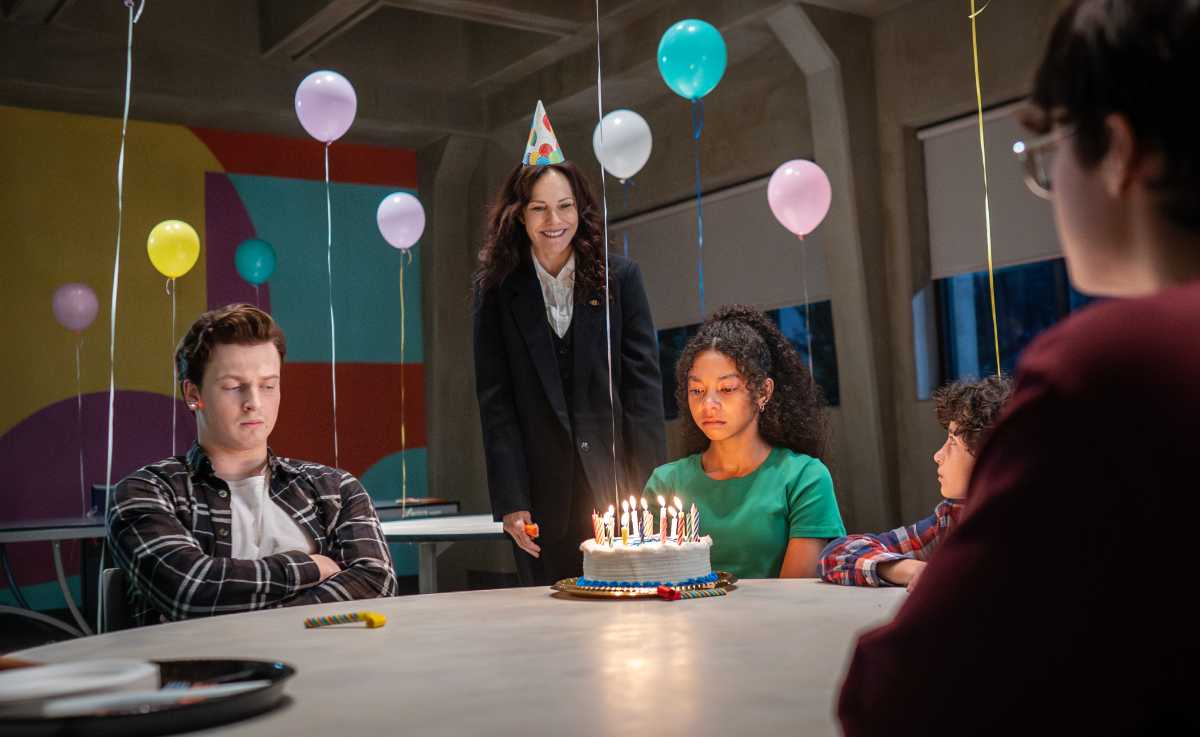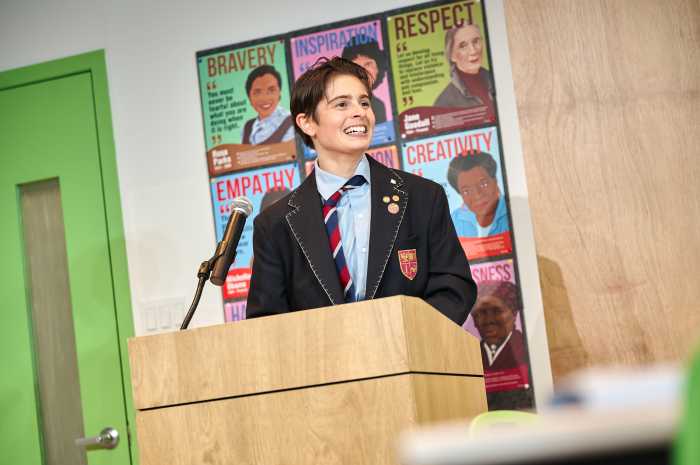Twenty years ago Thursday, HBO viewers watched the debut of “The Sopranos” and saw a hulking, depressed New Jersey wiseguy tell his new psychiatrist: “The best is over.”
For this game-changing series, the best was yet to come, of course. But from the get-go audiences sat up — bada bing! — and took notice.
“It was a phenomenon almost from the start,” ex-New Jersey Star-Ledger TV critics Alan Sepinwall and Matt Zoller Seitz write in “The Sopranos Sessions,” a collection of recaps, essays and interviews out Tuesday.
“Pre-‘Sopranos,’ TV was widely dismissed as a medium for programs that didn’t ask the viewer to think about anything except what was coming on next,” they continued, “and that preferred lovable characters who didn’t change and had no inner life.”

That’s not how “The Sopranos” rolled.
During its seven-season run, the audacious, brutal, darkly funny, deadly serious, and, yes, moving drama won 21 Emmys including three apiece for the late James Gandolfini, who led the cast as the alternately appalling and appealing “waste management consultant” (his term) Tony Soprano, and Edie Falco, who played ever-complicit Carmela, his wife.
A critical and commercial hit, the show shunned formulaic storytelling and characters, proving TV could match the complexity and production values of movies. It’s been hailed one of — if not the — best series of all time. It’s been credited for launching a new Golden Age of Television.
“That’s not just hype,” TV Guide critic Matt Roush told amNew York. “‘The Sopranos’ transcends categorization. It fused together a psychological family drama and a crime drama like nothing before it on television. To me, ‘Sopranos’ was Francis Ford Coppola meets John Cheever.”
TV expert Dana Polan, a professor of cinema studies at New York University whose 2009 book “The Sopranos” analyzed the TV show’s cultural impact, regards the program as a mash-up marvel.
“What made ‘The Sopranos’ so special and different is that it made low, scuzzy people the subject matter of high-quality TV,” he told amNew York. Earlier shows like “Dallas” featured “venal people,” he added. “But those shows were guilty pleasures. ‘The Sopranos’ broke the mold and took all that came before and legitimized it.
“For me, the legacy extends beyond TV to the real-life show we’re in now,” Polan added. “It’s very scuzzy. There’s a lot of bad behavior at the highest levels of power. Instead of condemning it, it’s being applauded."
Powerful reach for a program creator David Chase didn’t believe would get made. He’d been told the mafia storyline was tired. Nope. The series shocked cable-TV audiences awake, like a shot of adrenaline straight to the heart.
“One hallmark of ‘The Sopranos’ is unpredictability,” Sepinwall, who reviews for Rolling Stone, told amNew York. “Fundamentally, you didn’t expect the show to be what it was or to have the impact on TV it did. You didn’t expect stories to go where they did. But again and again the show defied expectations.”
Audiences came to expect — and even demand — curveballs as they followed Tony’s felonious and philandering exploits, he added.
For Seitz, who writes for New York Magazine, “what made ‘The Sopranos’ special is its narrative and moral ambiguity,” he told amNew York. ”It asked you to imagine being someone who’s other than the norm.”
As in, a coldblooded creep. Tony’s true colors (blood red, among them) emerged in the first season’s fifth episode when he took his daughter on a college tour and happened upon a mob informant and eventually strangled the rat. Meet the real Tony: Family guy and monster. Audiences were drawn to both sides.
“‘The Sopranos’ invited us,” added Seitz, “to enter that alternative moral universe.”
And to hang out in New Jersey McMansions, strip clubs and pork shops.
HBO’s “Sex and the City” gave New York star billing. It is peripheral yet still pivotal in “The Sopranos,” as opening credits reveal Tony leaving NYC and arriving in NJ.
“By entering New Jersey rather than leaving it, ‘The Sopranos’ declares it intends to explore the characters’ state as well as their state of mind, how each informs the other,” Sepinwall and Seitz write.
The city, the main seat of the mob, looms large — threatening and aspirational.
“It’s as if Tony, like New Jersey itself, is always looking over his shoulder at New York,” said longtime TV critic David Hinckley, who writes about pop culture for Medium.
The show “deserves the superlatives — and a couple of asterisks,” he told amNew York. “The last couple of seasons were uneven and even unnecessary. They lost focus and drive. I’m also in the crowd who hated the abrupt ending.”
Despite reservations, Hinckley, like the other critics interviewed, believes unequivocally that the series “opened doors and laid the groundwork for heavy-hitting shows that embraced antiheroes and the fact that humans come with flaws.”
Tony Soprano paved the way for the likes of Walter White of “Breaking Bad,” Don Draper of “Mad Men” and Philip Jennings of “The Americans,” plus such shows as “Deadwood,” “Boardwalk Empire,” “Sons of Anarchy,” “Game of Thrones” and “Nurse Jackie.”
“Not since ‘I Love Lucy’ had a show been copied as often and thoroughly,” according to “The Sopranos Sessions,” “to the point where 2019 TV barely resembles the one into which Tony Soprano’s SUV rumbled back in 1999.”
A “Sopranos”-themed film festival Wednesday through Monday at the SVA Theatre and IFC Center organized by Seitz looks at movie influences on the series and vice versa. On tap are screenings of “Blow-Up,” “Trees Lounge,” “The Public Enemy” and “Goodfellas,” as well as the “pine barrens” episode of the series.
As for “The Sopranos” movie prequel set in the 1960s in the works, Sepinwall is on board.
“David Chase wouldn’t be doing it if it wasn’t a good idea,” he said. “I’m happy to have more Sopranos-related content.”






































